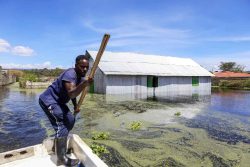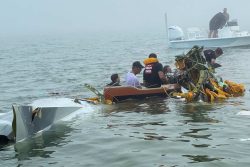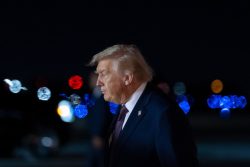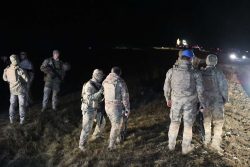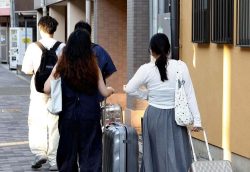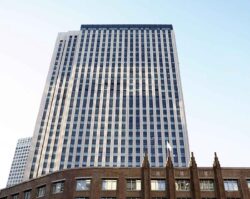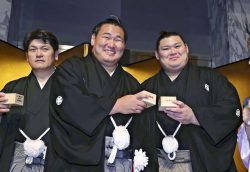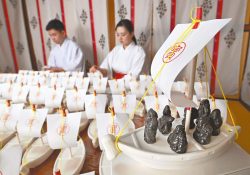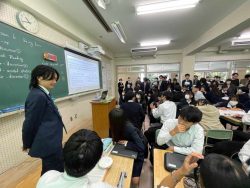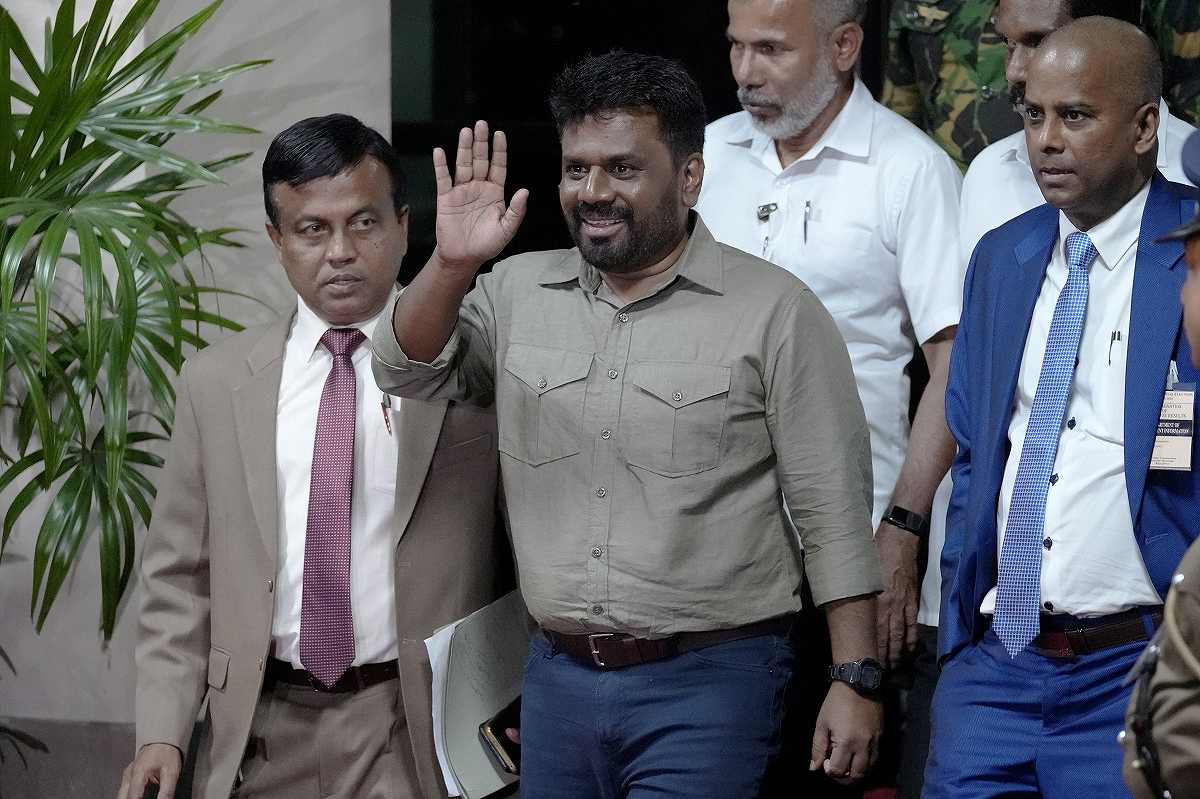
Marxist lawmaker Anura Kumara Dissanayake waves as he departs the election commission office after winning the presidential election in Colombo on Sunday.
16:57 JST, September 23, 2024
COLOMBO (AP) — Marxist leader Anura Kumara Dissanayake was sworn in as Sri Lanka’s president on Monday after an election that saw voters reject an old guard accused of leading the country into economic crisis.
Dissanayake, 55, who ran as head of the Marxist-leaning National People’s Power coalition, defeated opposition leader Sajith Premadasa and 36 other candidates in Saturday’s election.
Dissanayake received 5,740,179 votes, followed by Premadasa with 4,530,902.
In a brief speech, the new president pledged to work with others to take on the country’s challenges.
“We have deeply understood that we are going to get a challenging country,” Dissanayake said. “We don’t believe that a government, a single party or an individual would be able to resolve this deep crisis.”
Just before the swearing in, Prime Minister Dinesh Gunawardena resigned, clearing the way for the new president to appoint a prime minister and a cabinet.
The election came as the country seeks to recover from its worst economic crisis and resulting political upheaval.
He’s the ninth person to hold Sri Lanka’s powerful executive presidency, created in 1978 when a new constitution expanded the office’s powers.
Dissanayake’s coalition is led by the Janatha Vimukthi Peramuna, or People’s Liberation Front, a Marxist party that waged two unsuccessful armed insurrections in the 1970s and 1980s to capture power through socialist revolution. After its defeat, the JVP entered democratic politics in 1994 and has been mostly in opposition since then. However, they have supported several previous presidents and been part of governments briefly.
The NPP also includes groups representing academics, civil society movements, artists, lawyers and students.
Dissanayake was first elected to Parliament in 2000 and briefly held the portfolio of agriculture and irrigation minister under then-President Chandrika Kumaratunga. He ran for president for the first time in 2019 and lost to Gotabaya Rajapaksa.
Dissanayake’s first major challenge will be to act on his campaign promise to ease the crushing austerity measures imposed by his predecessor Ranil Wickremesinghe under a relief agreement with the International Monetary Fund.
Wickremesinghe has warned that any move to alter the basics of the agreement could delay the release of a fourth tranche of nearly $3 billion.
That economic crisis resulted from excessive borrowing to fund projects that did not generate revenue, the impact of the COVID-19 pandemic, and the government’s insistence on using scarce foreign reserves to prop up its currency, the rupee.
It led to shortages of essentials such as foods, medicines, cooking gas and fuel in 2022, triggering massive protests that forced then-president Rajapaksa to flee the country and resign.
Wickremesinghe, then prime minister, was elected by Parliament to fill the remainder of Rajapaksa’s term.
"News Services" POPULAR ARTICLE
-

American Playwright Jeremy O. Harris Arrested in Japan on Alleged Drug Smuggling
-

Japan’s Nikkei Stock Average as JGB Yields, Yen Rise on Rate-Hike Bets
-

Japan’s Nikkei Stock Average Licks Wounds after Selloff Sparked by BOJ Hike Bets (UPDATE 1)
-

Japan’s Nikkei Stock Average Buoyed by Stable Yen; SoftBank’s Slide Caps Gains (UPDATE 1)
-

Japanese Bond Yields Zoom, Stocks Slide as Rate Hike Looms
JN ACCESS RANKING
-

Tokyo Economic Security Forum to Hold Inaugural Meeting Amid Tense Global Environment
-

Keidanren Chairman Yoshinobu Tsutsui Visits Kashiwazaki-Kariwa Nuclear Power Plant; Inspects New Emergency Safety System
-

Imports of Rare Earths from China Facing Delays, May Be Caused by Deterioration of Japan-China Relations
-

University of Tokyo Professor Discusses Japanese Economic Security in Interview Ahead of Forum
-

Japan Pulls out of Vietnam Nuclear Project, Complicating Hanoi’s Power Plans


